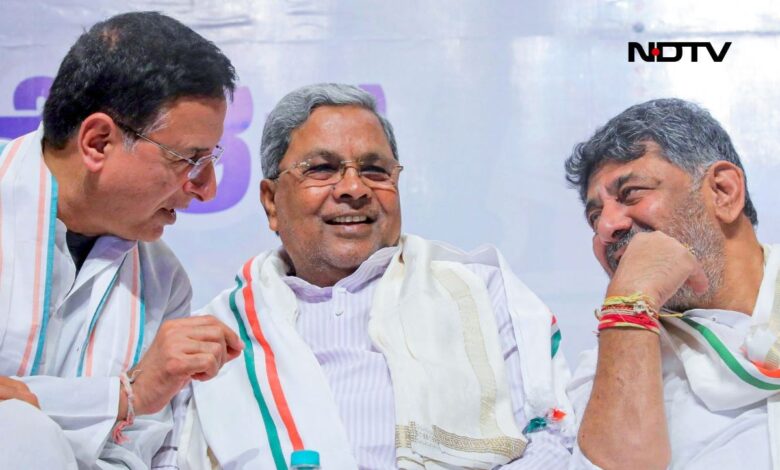Next 20 Months Can Change Congress’s Fate In Karnataka

As we reach almost the end of the first month of the new year, the Congress government in Karnataka completes 20 months in office—a third of its 60-month (five-year year) term. The next 20 months will decide the fate of the government in the state.
One notices that most regimes in Karnataka tend to slip perilously in the second phase of their terms, often due to a drift in governance and loss of focus. Ultimately, they find it difficult to recover from this non-performance and are shown the door. This explains the revolving-door politics seen in Karnataka since 1985, where no ruling party has been able to secure a clear majority at the end of its term.
Three principles define and decide the success of a state government: efficiency in governance, unity in the ruling party, and social harmony. A review of past governments would indicate that they failed to abide by all or at least two of these principles.
Respond To Aspirations
There is enough empirical evidence to show that across the country, governments have been returned to power when voters perceive a dispensation to have performed reasonably well on key indicators of governance. A Lokniti post-poll study done in Karnataka after the 2024 Lok Sabha election shows that if the Congress was able to return to its 2014 Lok Sabha tally (nine seats), it had a lot to do with citizens’ perception of the implementation of its key guarantees. Its improved performance among women voters also underlines this trend. The Congress’s clean sweep in the recent by-elections was, along with other significant factors, also largely because of these guarantees. Thus, a focus on governance that responds to the aspirations of different segments of society is a sure route to success.
How public perception changes amid scandals and controversies involving the government and its leaders is also an issue. In the past, this factor has shifted the government’s attention away from governance to fire-fighting and damage control measures. The current government in Karnataka is facing a similar challenge currently. Will the next 20 months see it somewhat tiding over allegations of misuse of power, or will they further dent the image of the government?
Don’t Frustrate Voters
A second crucial element that has in the past derailed ruling parties is disunity. Electoral victories have been won on the basis of party unity. Sometimes, voters, frustrated by incessant infighting within a ruling party, may boot it out of power. The Congress had fought the 2023 assembly elections as a united force. Setting aside differences on who should be the Chief Minister, the focus was on coming to power first and then resolving the issue. On the other hand, divisions within the previous incumbent, the Bharatiya Janata Party (BJP), were all too visible during its campaign for the elections. Now, though the ruling Congress has somewhat managed to resolve the leadership issue within its own ranks with an understanding between the top two leaders, internal strife has reared its head frequently and the top brass has had to intervene from time to time. The shadow boxing, mainly between the supporters of Siddaramaiah and D.K. Shivakumar, is patently visible. What has worked so far to the advantage of the Congress is that the state unit of the BJP is equally bogged down by infighting.
The next 20 months would be crucial for both players. Past experience has shown amply that incessant internal squabbles can cost parties. While a stable leadership is important, it also needs to be smooth and demonstrate policy continuity.
Build Confidence—And Harmony
The third and final element of governance, social harmony, is a by-product of several factors. It requires maintaining law and order, the safety of women, religious peace, cordial relations between caste groups at the grassroots, and containing social acrimony. Achieving this implies that any ruling party will have to take a proactive approach and build confidence among all stakeholders. In the coming 20 months, one would look for indications of the same. Any lapse here can seriously erode public confidence.
(Dr. Sandeep Shastri is the National Coordinator of the Lokniti Network)
Disclaimer: These are the personal opinions of the author
Source link





